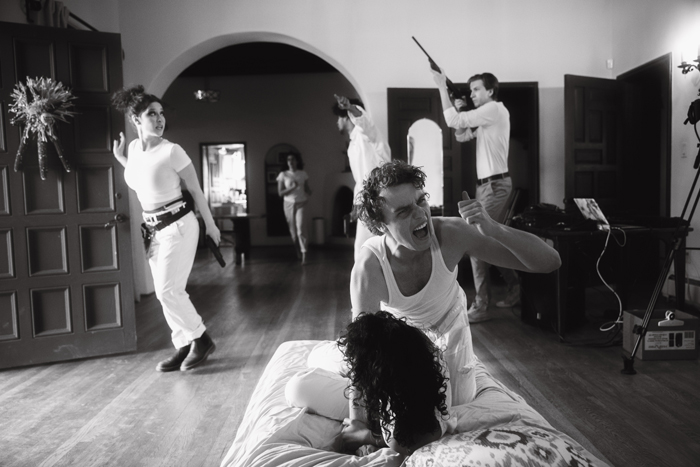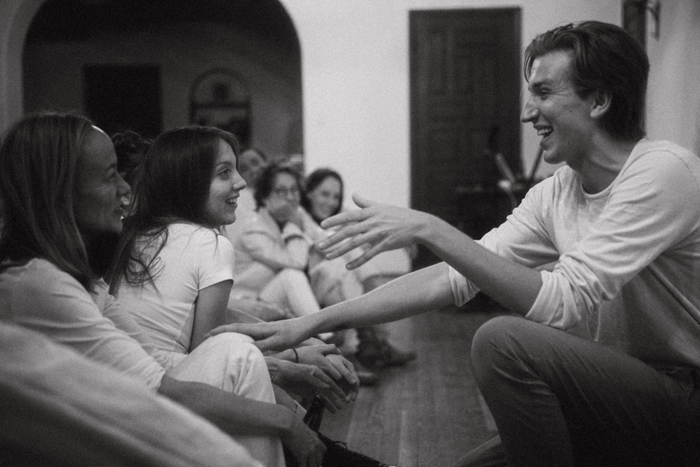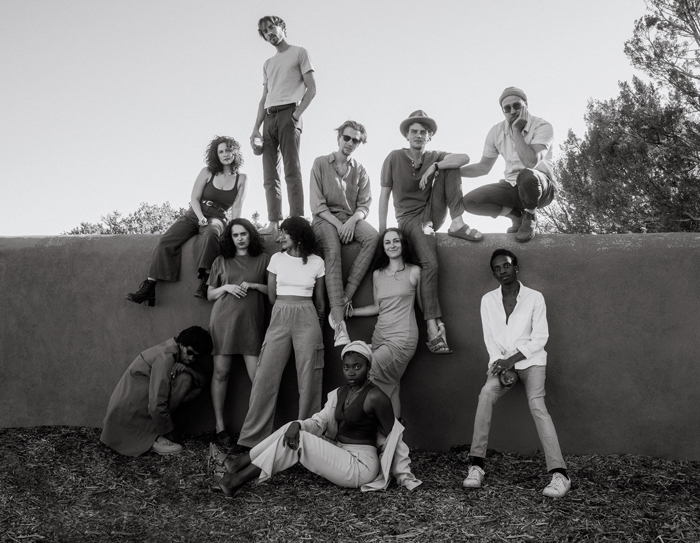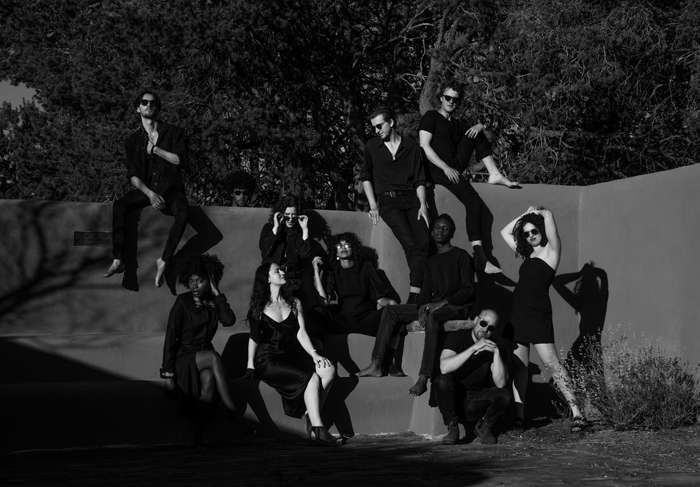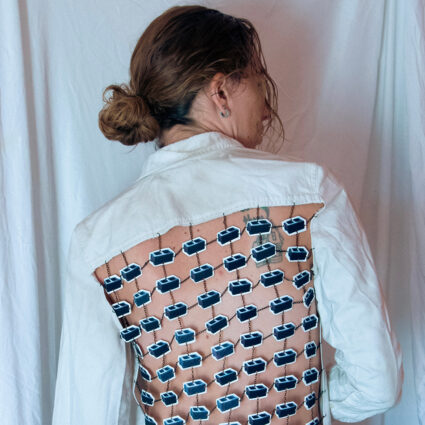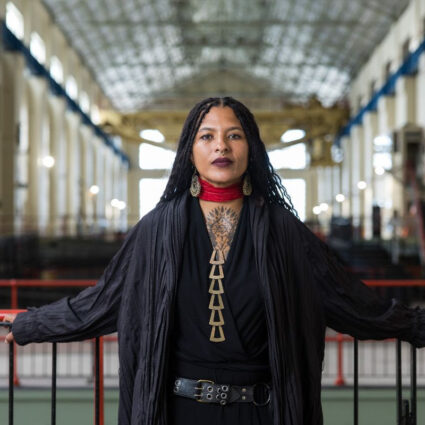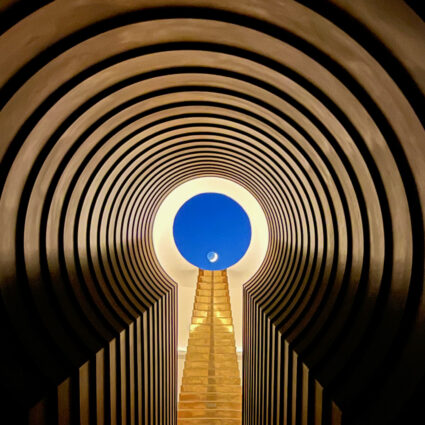The Exodus Ensemble, an immersive theater group in Santa Fe, combines tactics from television with live performance to create intense, dramatic theater.
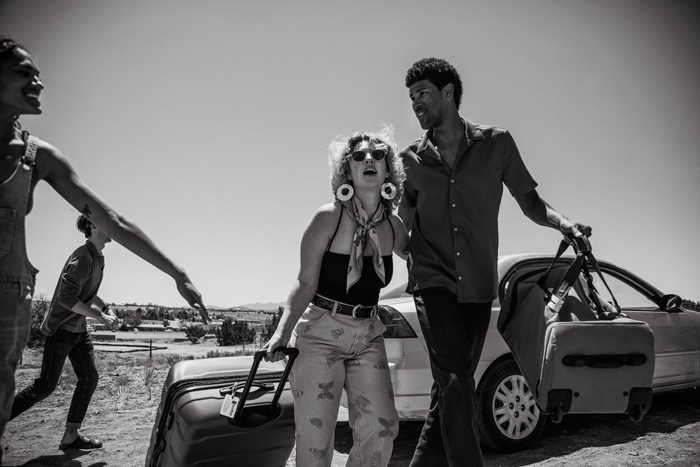
SANTA FE, NM—It all starts as fun and games. A night out with friends, the expectation of entertainment. Before long, the cracks in this reality you know to be true will soon start showing. What you think about theater, and what you know about yourself as the audience, could be turned upside down. There’s no curtain to divide your reality from performance—it’s just you and a paradigm-shifting, trigger-warning-heavy production by the Exodus Ensemble.
Founded in late 2020, the Exodus Ensemble is a Santa Fe-based theater group making a stir with immersive theater experiences. The group, comprised of eleven artists—most of whom are recent graduates of DePaul University in Chicago—is building a repertory based on classic texts and adapted for a modern retelling. The ensemble was created by April Cleveland, who has a firm pulse on the zeitgeist and a vision to push the boundaries of how we think about what is real.
“As a director, I’ve always been most focused on the nature of reality and what it means to push that interrogation as far as possible,” says Cleveland, “as opposed to creating work that has a clear message or moral.”
Seeing an Exodus production feels like being put under a spell. The stories they tell, the intensity with which they tell them, and the limited physical distance between you and the actors shift one’s foundation of knowing what is or isn’t performance. The actors are so engaging you want to be fully in it with them.
Your guard goes down, you want to play, and next thing you know you’re in a cramped bathroom just an arm’s reach from real-life struggles: the disturbing and dangerous quid pro quo nature of spiritual movements, the insidious emotional upheaval caused by substance abuse. Between being alive long enough and growing up in new-age haven Santa Fe, I was struck by how close it all felt, and shook by how these portrayals felt so relevant to my own life.
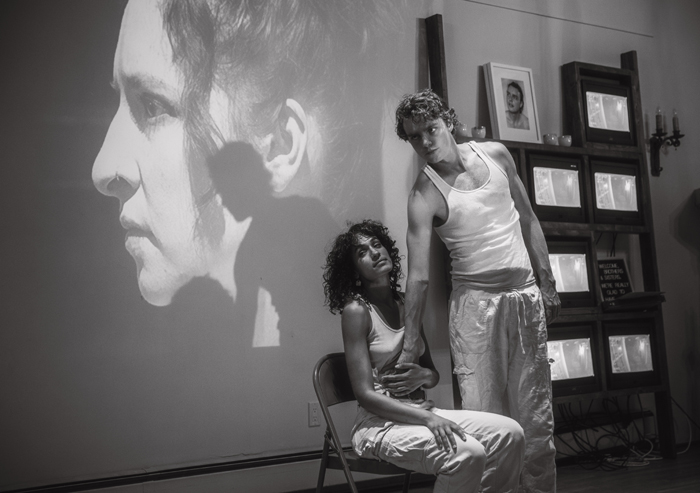
By working with classic stories, the poignancy of the themes the Ensemble explores is universal, and the stories cut deep. This universality allows audiences to freely investigate their own emotional landscapes.
“I think the particular group of people I asked to come here, they’re all people I’ve worked with before, and they’re very talented, but they’re also the wildest souls that I know,” explains Cleveland. “They have a shared interest in questions as opposed to answers, and putting things on stage that are full of contradictions and paradoxes and problems, and the nasty parts of humanity as much as the joyful parts of humanity.”
In creating its work, Exodus takes a close look at cultural trends and what is speaking to the masses, as well as the way we engage with those stories. Attendance in theaters has diminished, but the human need for storytelling is ever-present, especially in the allure of excellent television.
“Can we get to a lot more people who would never go to a theater if we adopt what people are already doing, which is watching Squid Game and Succession?” Cleveland says. “And think about why people are bingeing Netflix and why is that so compelling to millions of people?—and actually compete with it by taking the way that those shows work but make it a live experience.”
In film and television, the camera dictates how to see. Exodus translates that to the theater experience by incorporating live camera footage. In Bathsheba, the group projects video throughout, creating both a meta sensation and an intensified experience of particular moments. As Cleveland describes, “It’s how to control the frame in the live experience.”
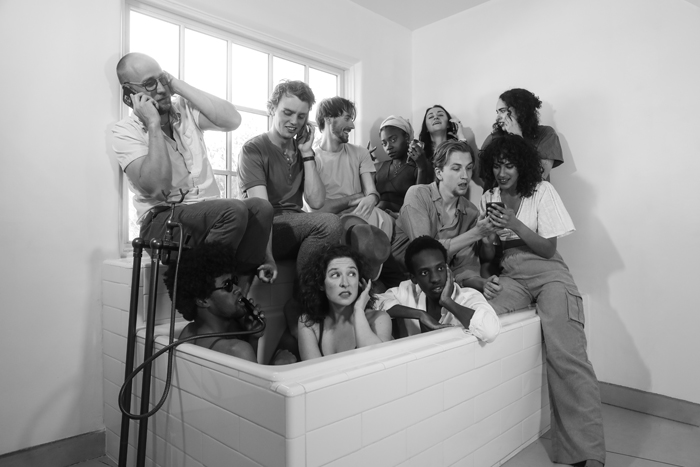
The ensemble plays with popular themes in television and film when working on a piece. Speaking with Cleveland, it’s clear she’s determined to show that theater has the same potential to speak to audiences the way television does. In Ivanov, there are themes of substance abuse, self-obsession, and shame; in Bathsheba, they head straight into cult territory.
Exodus describes their work as “theater MA” (for mature audiences), but unlike an episode of Euphoria, you might be only inches away from the performers. There is an assumed trust between audience and actor, a delicate balance achieved at least in part by the group’s professionalism and the quality of the work.
In Ivanov, which is three and half hours long with a maximum audience of just eight people, you quickly learn everyone’s name, you’ll be called by your own, and as a group, you will witness emotions and lives shatter. There’s nudity, there’s violence, but at no point did it feel over the edge. Although you might need a drink afterward.
“I really wanted to break the rules of theater and do something that’s new and attracting new audiences… but have it underpinned with incredible actors and performances,” explains Cleveland. “I think experimenting and being innovative is not going to work in theater if you don’t have that.”
Experimentation within the medium is part of what makes an Exodus production so unlike other plays. The process of creating Bathsheba took nearly a year, a rare artistic freedom according to Cleveland.
“We created hundreds of hours of work that were cut for various reasons,” explains Cleveland. “The resource of time, because there’s no money in the American theater, is lacking, and that’s almost never going to produce something that’s exciting or on the edge.”
In July 2022, the group will begin workshops on a new production, Jason, which has been nearly a year in the making. Cleveland hopes to secure an additional location—all productions are currently performed at the Women’s International Study Center’s Acequia Madre House—so the group can perform simultaneous shows each night. She aspires to take the Exodus Ensemble on tour this year and, in the long run, find a way to scale and alter the world of theater at large.

